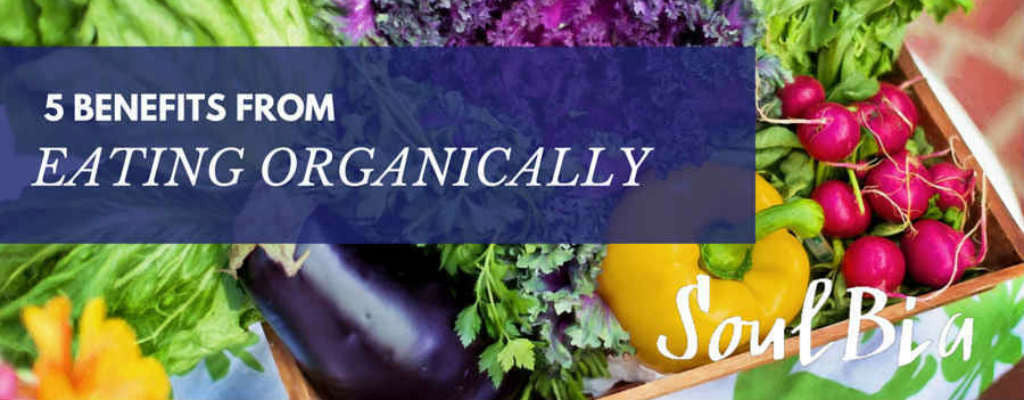
5 Benefits From Eating Organically
As health and environmental concerns become more prevalent, the popularity of organic food has increased significantly in recent years
Free from harmful chemicals and bursting with nutrition, consumers are now choosing to eat fresh foods that help them feel better and preserve the environment.
Here are five more reasons why consumers are opting to eat organically.
1. Higher Nutrient Content
Healthy soil, grows healthy food. Organically grown foods contain more vitamins, minerals, enzymes and micronutrients than conventionally grown food.
Research published in the British Journal of Nutrition found that there were significant nutritional differences between organic and non-organic produce. The study highlighted:
- Organic milk and dairy contained slightly higher concentrations of iron, Vitamin E and some carotenoids
- Organically produced cereals, fruit and vegetables, contained up to 68% more antioxidants than non-organic
- Organic meat contained around 50% more omega-3 fatty acids than non-organic
2. Reduced Exposure To Pesticides
Pesticides and herbicides are used to extend the life of fruits and vegetables, ensuring insects and animals do not attack them, and to help prevent mould from forming.
Although these chemicals enable food producers to grow food quickly, pesticides and herbicides have been linked to troubling health issues and can harm your nervous system.
To avoid the toxins, it is not quite as simple as just washing food with water as pesticides will have been taken up by the roots of produce and soaked in when sprayed.
The best way to avoid pesticides in all foods is to eat organically.
3. Tastes Better
With no additives or preservatives, organic produce actually tastes better. Cultivated using nourished, well-balanced soil, organic fruits and vegetables will have a stronger, more vibrant taste.
4. Better For The Environment
Organic farming does not use chemical fertilisers and many of the processes work with nature and the environment, not against it.
By relying on more natural forms of farming such as biological pest control and crop rotation, organic farming helps to reduce greenhouse gas emissions, conserve natural resources and preserve local wildlife.
Farmers rely on healthy soil to grow a mixture of crops; growing organic food helps enhance soil life and increase natural soil fertility. As a result, healthy living soil is produced which is more resistant to floods, drought and the impact of climate change.
5. Better For Wildlife
Animal welfare is a top priority for farmers and keeping animals healthy and content is a key practice in organic farming.
By providing animals with high-quality feed, regular exercise and access to pastures, this will help reduce stress and disease. Animals reared without the routine use of drugs or antibiotics and fed a natural diet which is free from genetically modified organisms (GMOs) are key organic farming principles designed to ensure that animals are treated humanely.

